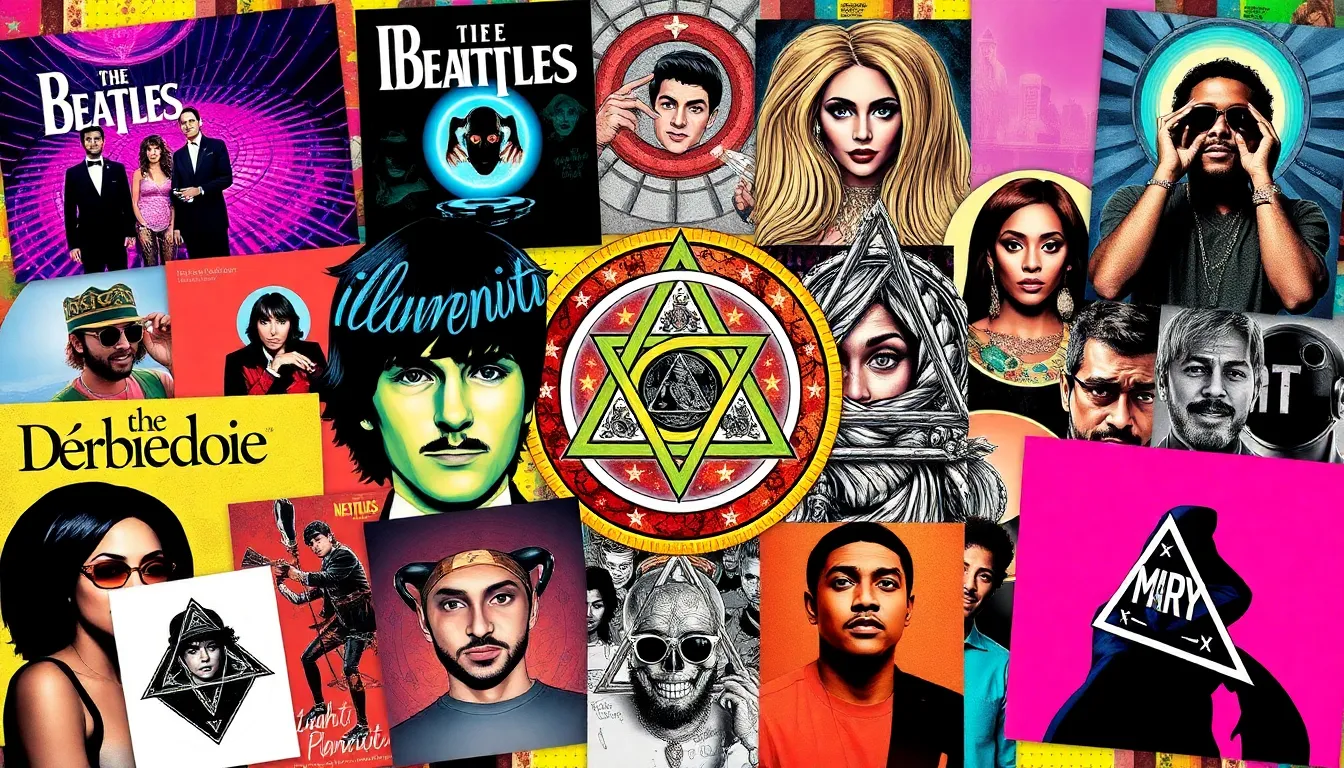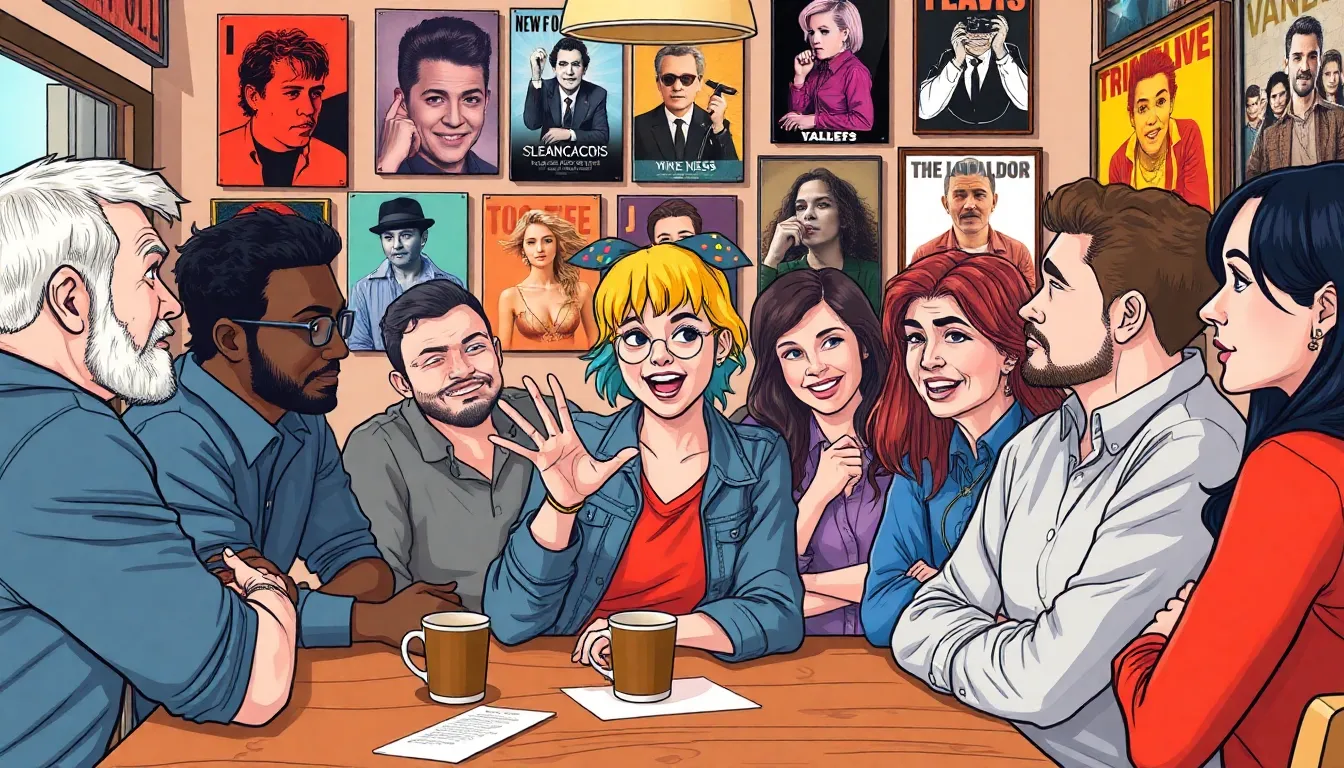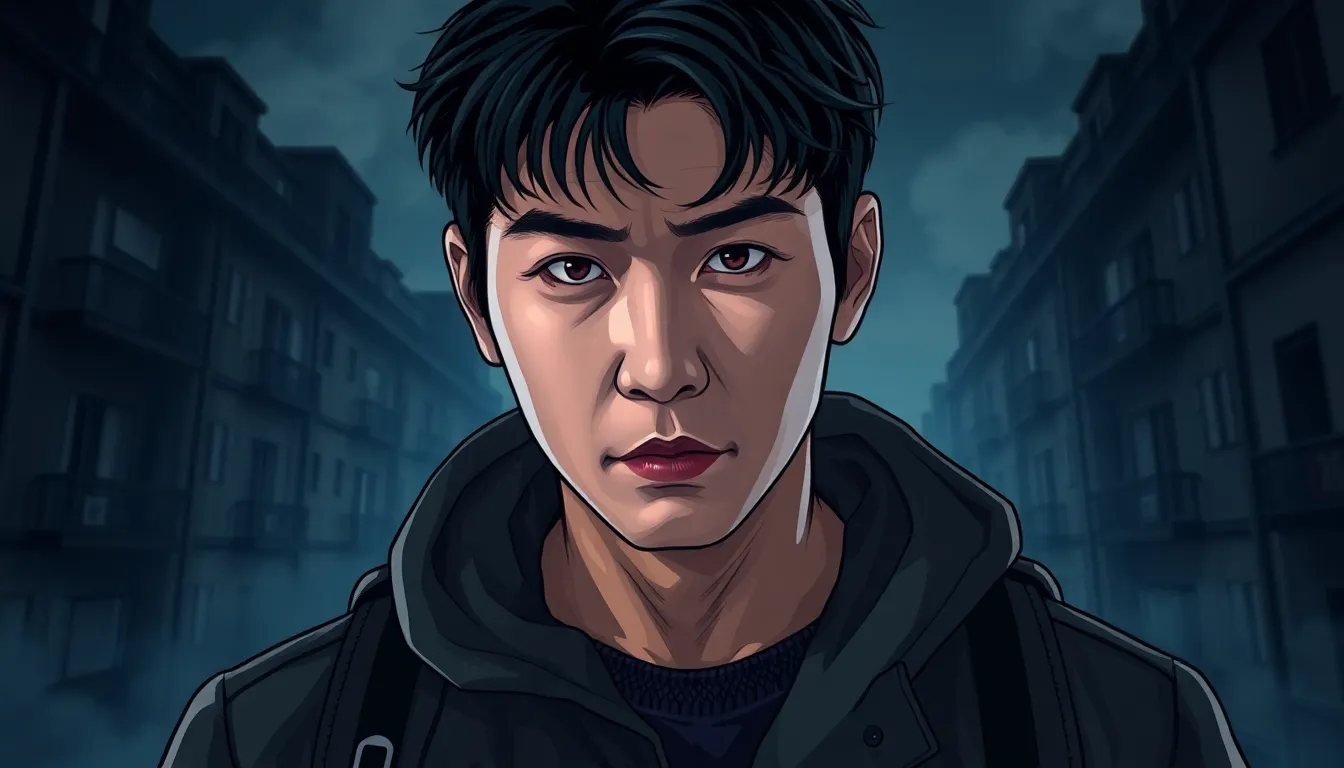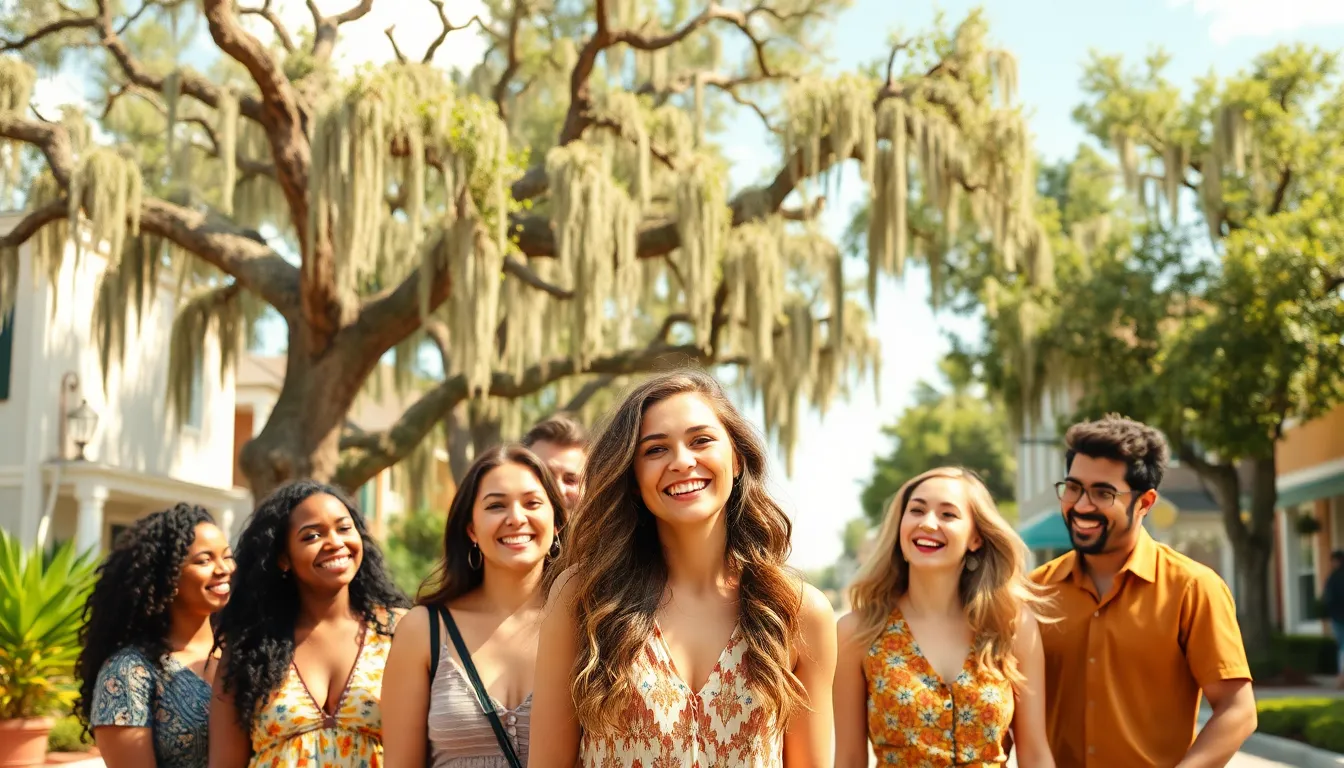In a world where reality often feels stranger than fiction, pop culture conspiracy theories thrive like weeds in a garden of bewilderment. From secret messages in beloved songs to hidden agendas in blockbuster films, these theories offer a thrilling escape into the bizarre. Who hasn’t chuckled at the idea that a famous musician is secretly an alien? Or that a beloved children’s show holds the key to a government cover-up?
Table of Contents
ToggleOverview of Pop Culture Conspiracy Theories
Pop culture conspiracy theories captivate fans by blending elements of reality with fiction. These theories often emerge from the cultural zeitgeist, making connections between celebrities, music, and movies. Secret messages embedded in popular songs intrigue listeners, prompting them to analyze lyrics for hidden meanings. Theories surrounding major films suggest hidden agendas or occult symbolism, offering an alternative interpretation of the cinematic experience.
Notable examples include claims that certain artists, like Paul McCartney, faked their deaths, sparking discussions about identity and authenticity. Claims of secret societies directing the entertainment industry promote a sense of intrigue and mystique. Various children’s shows often attract scrutiny, leading to accusations of promoting subliminal messages or ties to government initiatives.
Investigating these theories reveals an undercurrent of skepticism about mainstream narratives. Fans speculate about motives behind celebrity behaviors and events, fueling community discussions and online forums. Pop culture icons, from musicians to actors, become subjects of intense scrutiny as theorists dissect their public personas.
Different media outlets often amplify these conspiracy theories, creating a feedback loop that fuels fascination. Social media platforms allow rapid dissemination of ideas, enabling instant discussions and widespread engagement. Documentaries and podcasts have also emerged, further exploring these theories, often blending fact with speculation.
Understanding the allure of pop culture conspiracy theories involves recognizing humanity’s desire for connection and meaning in a complex world. While entertaining, these theories also serve as a reflection of society’s concerns, fears, and hopes, making them a unique aspect of modern culture.
Famous Pop Culture Conspiracy Theories

Pop culture conspiracy theories capture imaginations with their bizarre claims and often humorous overtones. Various examples illustrate their widespread appeal and intrigue.
The Paul McCartney Death Hoax
The claim that Paul McCartney died in 1966 remains one of the most enduring conspiracy theories. Proponents argue that the surviving Beatles replaced him with a look-alike to maintain the band’s success. They cite supposed clues in song lyrics and album covers, such as “Let It Be” and “Abbey Road,” which they believe reveal hints of a cover-up. This theory reflects the fascination with celebrity culture and the obsession with secret truths. Many fans continue to dissect clues, attributing hidden meanings to McCartney’s music and public appearances.
The Illuminati in Music
The idea that secret societies like the Illuminati influence the music industry captivates a wide audience. Supporters allege that numerous artists, including Beyoncé and Jay-Z, have connections to this enigmatic group. Theories suggest that these musicians use symbolism in their music videos to signal allegiance to the Illuminati. Observers note the recurring themes of power and control in the lyrics and visuals, fueling interest and suspicion. Critics argue that these interpretations reflect societal anxieties rather than concrete evidence. This theory embodies the allure of hidden agendas within the pop culture landscape.
The Impact of Social Media on Conspiracy Theories
Social media plays a critical role in the spread of conspiracy theories within pop culture. Platforms like Twitter, Facebook, and Instagram facilitate rapid sharing of information, enabling ideas to go viral almost instantaneously. Viral trends often stem from sensational claims and catchy hashtags, inviting users to engage with content without verifying its accuracy. Misinformation can spread in this environment, resulting in a web of theories that blur the line between fact and fiction. Users frequently encounter algorithms that prioritize engagement over truth, amplifying sensational content. This environment fosters a community where individuals exchange ideas, reinforcing beliefs and creating an echo chamber for conspiracy theories.
Viral Trends and Misinformation
Viral trends frequently propagate conspiracy theories across social media. Users amplify fantastical claims with each share, leading misinformation to flourish. Platforms encourage sensationalism, compelling users to create eye-catching headlines and elaborate stories. Such dynamics enable dubious narratives, often lacking credible sources. Friends, family, and influencers can act as trusted voices, further legitimizing unverified claims. Researchers note the speed of viral content overwhelms traditional news cycles, with false information spreading quicker than corrections. Consequently, this rapid exchange creates confusion around important topics, fostering distrust in established narratives.
The Role of Influencers
Influencers hold significant sway over public perception, shaping beliefs about conspiracy theories. Popular figures can either debunk misinformation or propagate it with their large followings. When influencers share unverified claims, their audience may accept these ideas without skepticism. Some influencers capitalize on conspiracy theories for engagement, adding to their allure and reach. Moreover, concerns about responsibility arise as misinformation grows, with some platforms implementing measures to combat harmful content. Trust in influencers often overshadows critical thinking, allowing conspiracy theories to gain traction. Their influence highlights the need for media literacy as audiences navigate complex narratives.
Analyzing the Psychology Behind Conspiracy Theories
Conspiracy theories often arise from a need to make sense of a chaotic world. Individuals search for patterns in randomness, establishing connections that may not exist. This tendency explains the fascination with pop culture theories surrounding celebrities, where fans derive meaning from obscure details. Psychological research supports that cognitive biases contribute to these beliefs, with confirmation bias playing a significant role.
Skepticism towards mainstream narratives drives many to embrace conspiracy theories. Distrust in established institutions like government and media incentivizes exploration of alternative explanations. Engaging with these theories offers a sense of community, fulfilling a social need for belonging. Social media amplifies this phenomenon, allowing individuals to connect with others who share similar beliefs.
The allure of outrageous claims captivates audiences, often overshadowing critical thinking. For example, the idea that major artists are part of secret societies feeds into societal anxieties regarding power and control. Furthermore, cognitive dissonance pushes believers to maintain their views despite contradictory evidence.
Another factor involves the human desire for uniqueness. Embracing conspiracy theories provides an avenue to feel special or insightful, contributing to one’s identity. Exploring these theories often becomes an entertaining endeavor, mixing elements of creativity and fiction.
Communities fostered around these ideas perpetuate their existence, reinforcing belief systems through collective validation. Such environments can create echo chambers, isolating adherents from conflicting viewpoints. Researchers argue that this dynamic not only spreads misinformation but also deepens individual commitments to their beliefs, complicating the challenge of debunking popular theories.
Pop culture conspiracy theories offer a fascinating glimpse into the human psyche. They reveal how individuals seek meaning in a chaotic world while navigating the blurred lines between reality and fiction. These theories thrive in a digital age where social media amplifies sensational claims and fosters communities around shared beliefs.
As fans engage with these narratives they not only find entertainment but also a sense of belonging. While skepticism towards mainstream narratives drives the allure of these theories it’s crucial to approach them with a critical mindset. Understanding the psychology behind these beliefs can empower individuals to discern fact from fiction in an ever-evolving cultural landscape.




